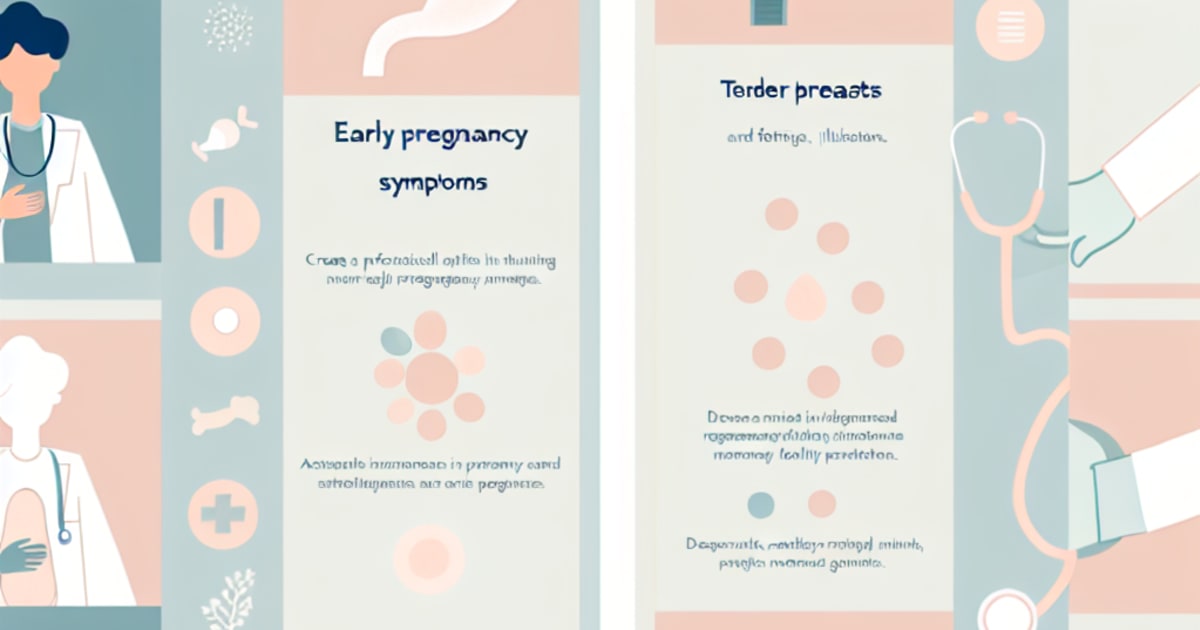
Early Pregnancy Symptoms - Key Signs to Look Out For
Introduction
Pregnancy is a beautiful journey that brings a myriad of changes in a woman's body. These changes often begin to manifest as early pregnancy symptoms. Some women may experience these symptoms within the first week of conception, while others may not notice any changes until a few weeks into their pregnancy. This blog post aims to provide a comprehensive guide on early pregnancy symptoms to help you understand what to expect during this exciting phase of life.
Understanding Early Pregnancy Symptoms
Early pregnancy symptoms are the initial signs that a woman may notice after conception. These symptoms can vary from woman to woman and can be mild or severe. They are the body's way of adapting to the new life growing inside. It's important to note that these symptoms can also be similar to those experienced before a menstrual period, so they are not definitive proof of pregnancy.
Common Early Pregnancy Symptoms
Missed Period
One of the most common early signs of pregnancy is a missed period. If you have a regular menstrual cycle and you notice that your period is late, it could be an indication of pregnancy. However, stress, changes in weight, or certain medical conditions can also cause a missed or delayed period.
Tender, Swollen Breasts
Changes in hormone levels may make your breasts sensitive or sore. This discomfort is usually similar to what you might feel before your period, but it can be more intense.
Fatigue
Feeling tired or fatigued is another common early pregnancy symptom. This is due to the increase in levels of the hormone progesterone.
Nausea with or without Vomiting
Often referred to as "morning sickness," nausea can strike at any time of the day or night. Some women may experience this a week or two after conception, while others may not feel it at all.
Increased Urination
You might find yourself urinating more often than usual. This symptom may start as early as six weeks into your first trimester.
Food Aversions or Cravings
During pregnancy, you might find that you're suddenly repulsed by certain foods or have a heightened sense of smell. Conversely, you might find yourself craving certain foods.
When to Take a Pregnancy Test
If you're experiencing some or all of these symptoms, it might be time to take a home pregnancy test. These tests work by detecting the presence of the hormone human chorionic gonadotropin (hCG) in your urine, which your body produces after a fertilized egg attaches to the wall of your uterus. This usually happens six to twelve days after conception.
Conclusion
Experiencing one or more of these symptoms could indicate that you might be pregnant. However, these signs can also be caused by other factors, so it's important to take a pregnancy test or consult your healthcare provider to confirm. Remember, every woman's experience with pregnancy is unique, so you might not experience all these symptoms or you might experience others not listed here. It's always best to listen to your body and seek medical advice when necessary.
